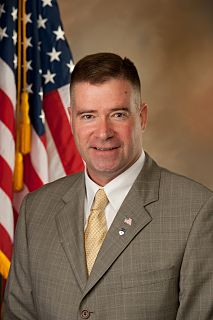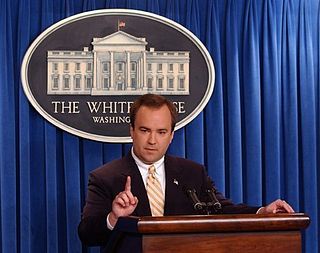A Quote by Barack Obama
But having made my decision as Commander-in-Chief based on what I am convinced is our national security interests, I will seek authorization for the use of force from the American people's representatives in Congress.
Related Quotes
Obama's decision to leave, to not sustain the victory that resulted after eight years of fighting, from 2003 to 2011 in Iraq, was another incredibly stupid decision. It was totally based on politics, not based on any notion of national security. It's a nightmare for our national security. And then you have the Libya intervention.
I hope President [Hamid] Karzai understands that our national security interests don't depend entirely on his decision there whether to allow a recount. Obviously the legitimacy of that government is an important component of it. My point is it shouldn't be the lynch pin for us deciding whether we're going to protect our national security interests in that region.
Through my time in the military and my deployments, I have recognized the importance of having a Commander in Chief who will not only go after those who threaten the safety and security of the American people, but who will also exercise good judgment and foresight in stopping these failed interventionist wars of regime change that have cost our country so much in human lives, untold suffering, and trillions of dollars.
American national security and American economic interests, of course - every president, every secretary of state - that is the primary goal. As you are in this job and in the work, you begin to see, though, that in the long run, both American economic interests and American national security are better served when there are other decent countries in the world who are both your allies and even when your adversaries are acting more decently.
Critics have stepped up their attacks on the President for authorizing the National Security Agency to listen to international communications of known al Qaeda members or affiliated terrorists during a time of war. The American people expect their leaders to stay a step ahead of the enemy, and the National Security Agency authorization is a critical tool in the War on Terror that saves lives and protects civil liberties at the same time.
We have a media that goes along with the government by parroting phrases intended to provoke a certain emotional response - for example, "national security." Everyone says "national security" to the point that we now must use the term "national security." But it is not national security that they're concerned with; it is state security. And that's a key distinction.


































